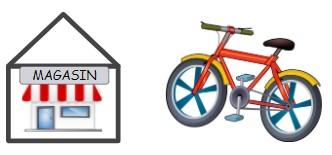Myths about teaching can hold you back
Learn why
Lesson 4 of 5
- Year 5
Giving opinions of the town and explaining those opinions
In this lesson, we will learn to use the verbs "aimer" and "être", the negative form "ne...pas", and the conjunction "car".
Lesson 4 of 5
- Year 5
Giving opinions of the town and explaining those opinions
In this lesson, we will learn to use the verbs "aimer" and "être", the negative form "ne...pas", and the conjunction "car".
These resources were made for remote use during the pandemic, not classroom teaching.
Switch to our new teaching resources now - designed by teachers and leading subject experts, and tested in classrooms.
Lesson details
Key learning points
- giving opinions of the town
- explaining the opinions
- conjugation regular verbs (-ER): j'aime, je n'aime pas, j'adore, je déteste
- être (elle est, elle n'est pas)
- intensifiers (assez, très)
Licence
This content is made available by Oak National Academy Limited and its partners and licensed under Oak’s terms & conditions (Collection 1), except where otherwise stated.
Loading...
Some of our videos, including non-English language videos, do not have captions.
5 Questions
Q1.Which sentence matches the pictures below?
Which sentence matches the pictures below?

Je vais à l'école en bus.
Je vais au parc à pied.
Q2.How do you say 'she is' in French?
How do you say 'she is' in French?
Bonjour
Je suis
Q3.Which word means 'big' in French?
Which word means 'big' in French?
bus
petit
Q4.Which sentence says 'she is small' in French?
Which sentence says 'she is small' in French?
Il y a une maison.
J'ai neuf ans.
Q5.Which letter is added to the end of the adjective when the word is feminine?
Which letter is added to the end of the adjective when the word is feminine?
b
g
5 Questions
Q1.How do you say 'I like my town' in French?
How do you say 'I like my town' in French?
J'adore ma ville.
Je déteste ma ville.
Je n'aime pas ma ville.
Q2.What does 'Elle est propre et tranquillle.' mean in English?
What does 'Elle est propre et tranquillle.' mean in English?
It is clean and modern.
It is quiet and historic.
Q3.Which sentence says 'I love my town because it is very modern and also it is quite big.'?
Which sentence says 'I love my town because it is very modern and also it is quite big.'?
J'adore ma ville car elle est assez moderne et aussi elle très petite.
J'aime ma ville car elle est assez petite mais elle n'est pas grande.
Q4.Which sentence says 'Je n'aime pas ma ville car elle n'est pas propre mais elle est assez moderne.'?
Which sentence says 'Je n'aime pas ma ville car elle n'est pas propre mais elle est assez moderne.'?
I don't like my town because it is not modern but it is quite clean.
I like my town because it is clean and it is quite modern.
Q5.Towns in Belgium and Switzerland are all French speaking.
Towns in Belgium and Switzerland are all French speaking.
True

